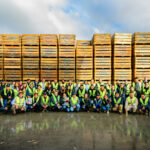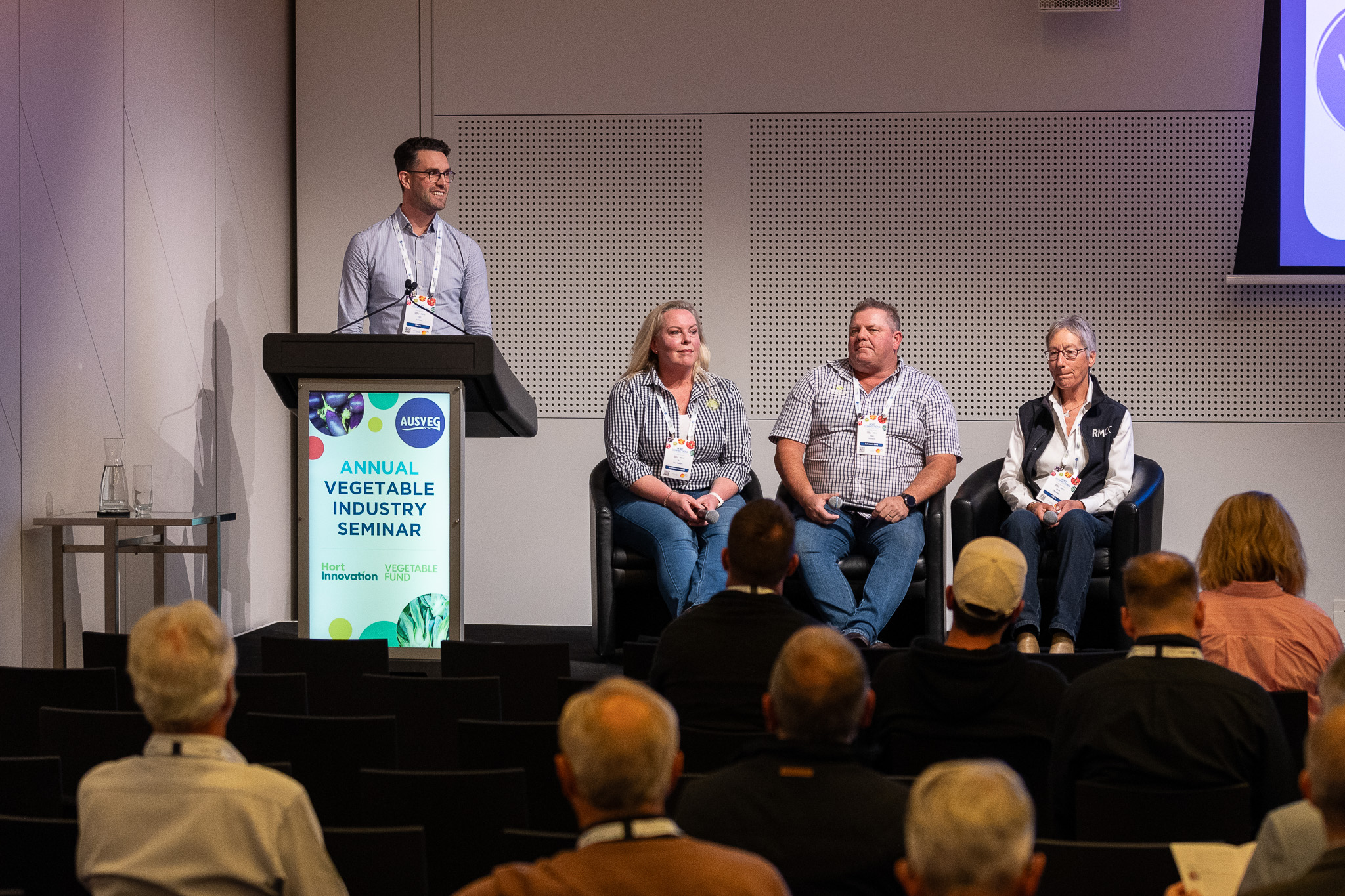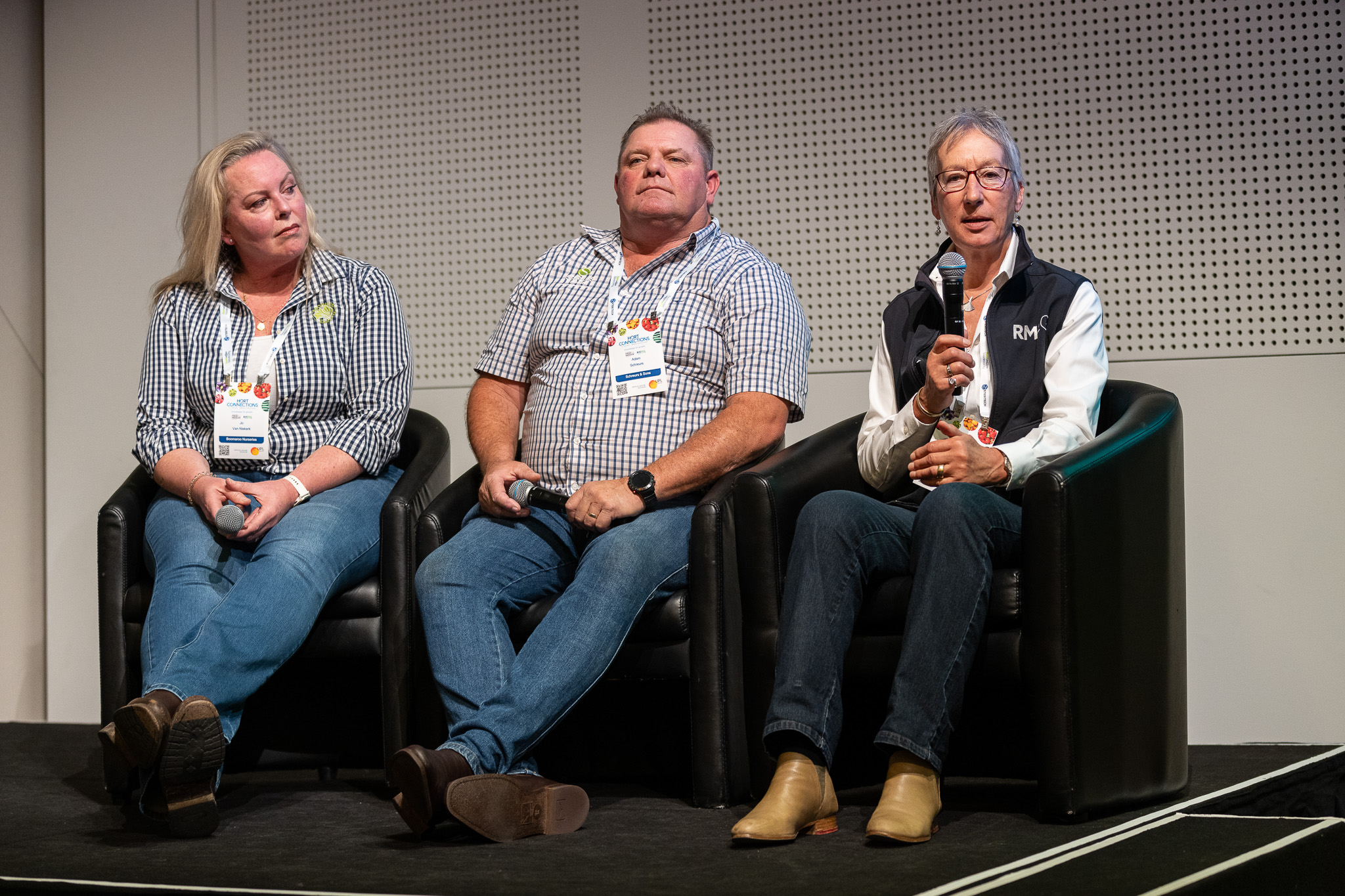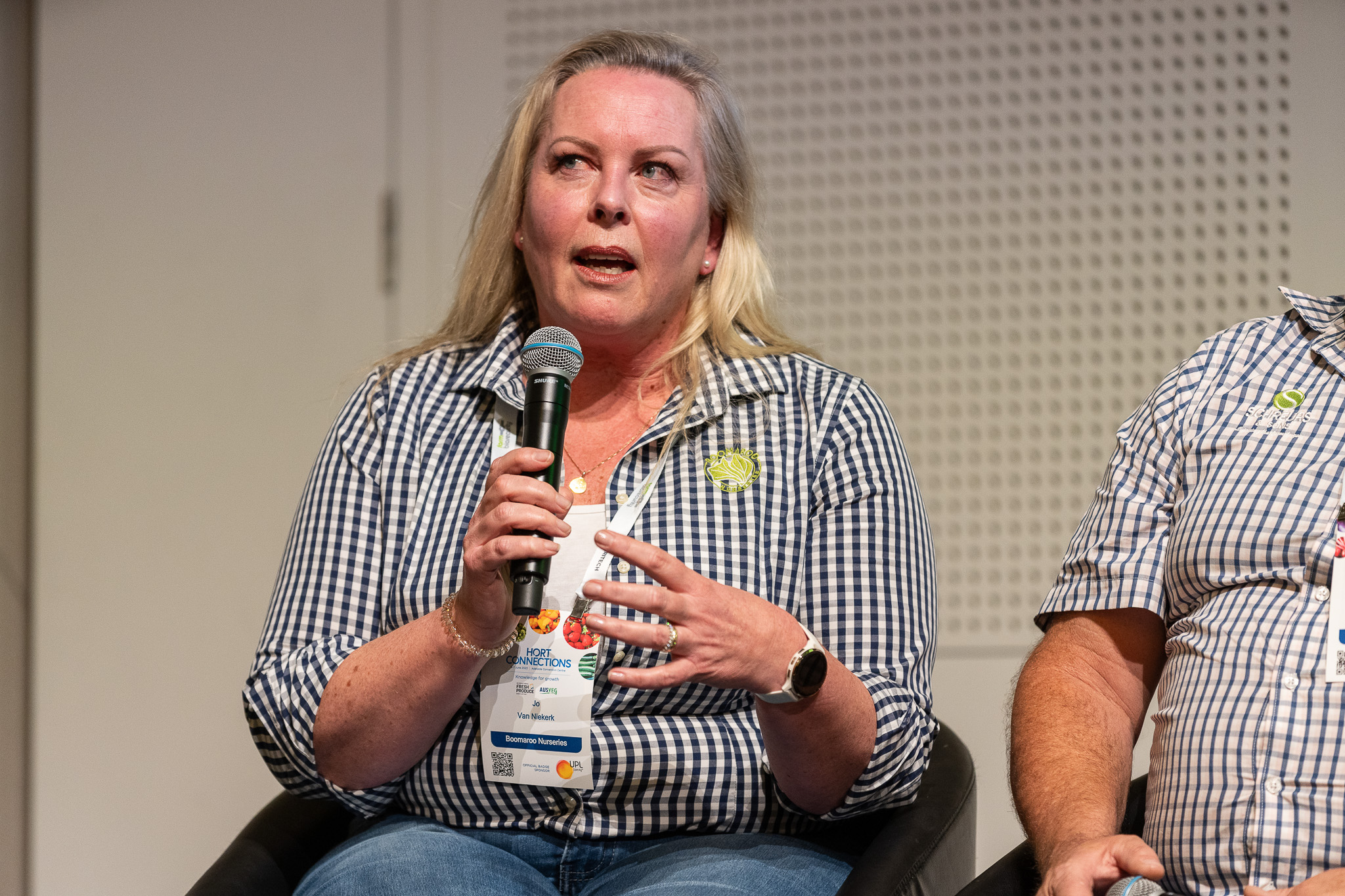
Reverse Trade Mission 2024
30 August 2024
Orange turns to gold for Rocky Lamattina & Sons
30 August 2024The key success factors for growers to plan ahead, understand their risks and improve their resilience were highlighted in a Soil Wealth ICP panel discussion at the Annual Vegetable Industry Seminar (AVIS) on 3 June, ahead of Hort Connections 2024 in Melbourne.
The panellists included vegetable grower Adam Schreurs from Schreurs & Sons, Jo van Niekerk from Boomaroo Nurseries, and farm business management expert Dr Doris Blaesing from RMCG and the Soil Wealth ICP team. The discussion was led by Soil Wealth ICP team member Carl Larsen.
Resilience means being prepared and able to adapt when unexpected things happen. In difficult times, farm businesses need to call on resources across farm management, environmental, financial, social and personal areas of their business to plan and recover well and ensure short- and long-term business viability.
While growers are known for their resilience, recent extreme weather events, a changing climate and strong market fluctuations have proven particularly challenging.
L-R Jo van Niekerk, Adam Schruers and Dr Doris Blaesing
Farm management resilience
Adam shared that maintaining healthy soils and building soil carbon through soil organic matter is a primary focus for Schreurs & Sons as they transition their property at Tarwin, South Gippsland from cattle grazing to celery, leek and spinach production. This is being supported through a demonstration site trial at the property as part of the Soil Wealth ICP project.
Understanding the role of carbon can help vegetable growers to remain profitable and sustainable into the future. For Adam, it has helped to maintain soil structure, particularly following heavy rainfall events, and soil moisture in dry conditions.
“Soil is the base of our growing system, and we are continually rotating our cash crops with cover crops. It keeps the soil in good condition, it keeps the organic matter in there and the soil carbon up,” Adam said.
Being as prepared as possible is key to building a resilient production system at Schreurs & Sons, and Adam achieves this by keeping an eye on weather conditions through on-farm weather stations, as well as monitoring soil moisture probes, using suitable drainage for crop beds and controlled traffic farming.
“We have underground drainage pipes, and we prepare the beds and contour all of our soil so any surface water runs off and the crops don’t drown,” Adam explained.
“Our wheel marks where the machines operate are always in the same spot so no crops are grown there. We use weights to pack down those wheel marks so we can still enter the crops and harvest in wet conditions.”
Doris drew on recent insights from delivering the Resilient Farming Tas program, which is working with individual businesses in Tasmania to prepare a Farm Business Resilience Plan.
“What we’re learning very quickly is that every business has different risk levels and needs to look at their own systems and risk profiles,” she said.
“While we obviously have to look at our soil, we also have to look at what’s going to happen to pests and diseases when the climate is changing.”
Jo van Niekerk of Boomaroo Nurseries.
Personal and social resilience
From a supply chain perspective, Jo explained that communication is essential for Boomaroo to effectively deliver a ‘live’ product – seedlings – to growers and work around their needs amidst current challenges, such as the fallout from extreme weather events.
“I see resilience as not just what’s happening on the farm but resilience of the farmer. We have to make sure we start focusing on the sustainability of the grower, not just their farms,” Jo said.
This communication is equally important within Boomaroo’s business.
“People at the nursery are encouraged to speak up if they see a safety issue and we have regular toolbox meetings about what’s going on and the weather events that are coming so our growing team is ready. We believe in promoting our staff and upskilling as it helps us to keep that knowledge base.”
For Adam, this can extend to ‘downskilling’ when necessary to achieve heavy workloads in a short timeframe, where it’s all hands-on deck no matter your position in the business.
Doris added: “People who have their staff involved in the discussions and understanding what’s important will generally be more resilient.”
Environmental resilience
At Tarwin, Schreurs & Sons has planted over 70,000 native trees to create shelterbelts around the property. It has also provided multiple other production benefits.
“We’re heavily into integrated pest management, so we’ve tried to mix up our native tree planting so they have something flowering all the time to encourage beneficial insects to be on the property constantly,” Adam explained.
“When we’re harvesting our crops, the beneficials have somewhere to go until the next crop is planted, and we don’t have to wait as long for them to build up naturally in our crop. It has reduced our use of insecticides phenomenally.
“We also get the benefits of less wind knocking down the crops. We have planted a lot of natural grasses and reeds in our drains and waterways so we don’t have to spray down weeds constantly. It also filters the water before it goes back to the dam.”
Financial resilience
The panel also touched on emissions which are closely linked to business profitability, as a farm with relatively high emissions is more likely to have inefficient practices in place.
Schreurs & Sons is looking to better understand its emissions profile by measuring nitrous oxide emissions from fertilisers and exploring options to take the farm completely off-grid using solar.
“Emissions are a great indicator of resilience. If you can’t measure them, you can’t manage them,” Doris explained.
“At some stage, you need to know your emissions to see whether you are making money or not. There are a lot of programs being rolled out on measuring emissions and a simple step is to ask somebody who knows how to do it.”
The Soil Wealth ICP team would like to thank Adam, Jo and Doris for their time and contributions to the panel discussion.
More information



